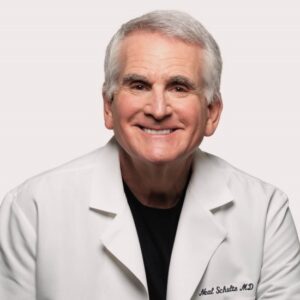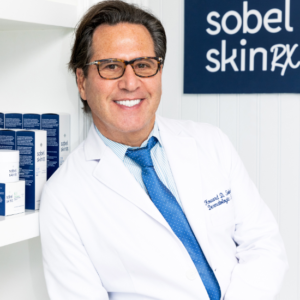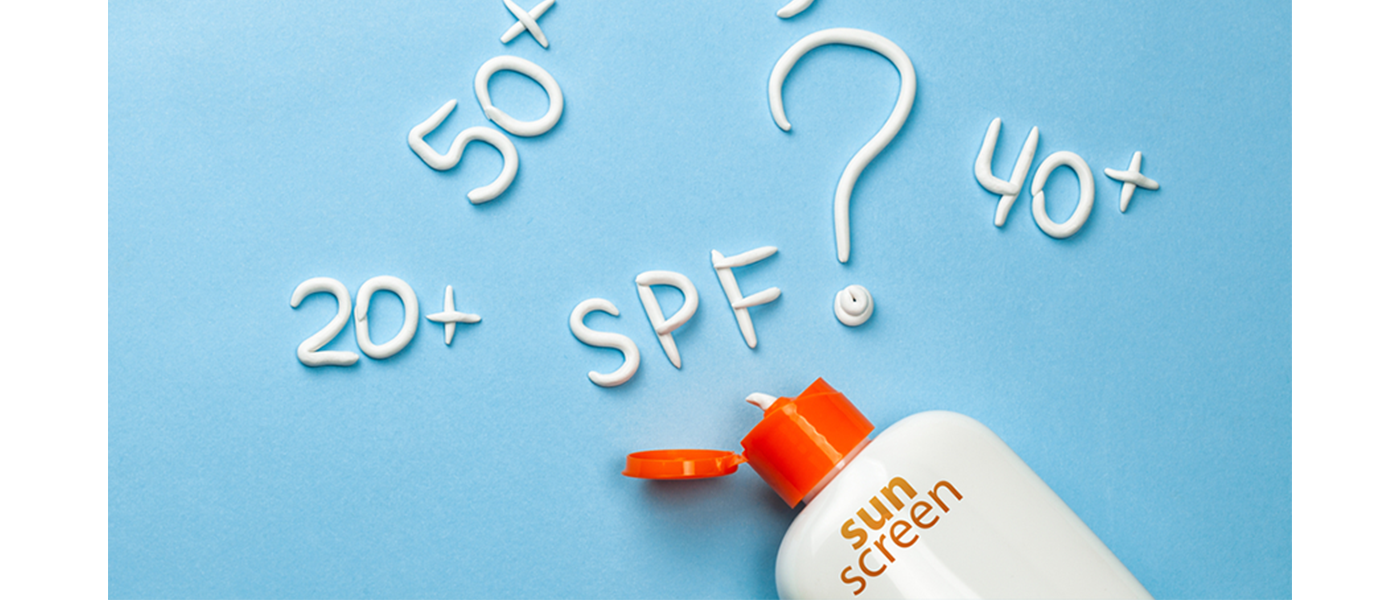Summer is running at full steam ahead and so is the U.S. market for sun care. CEW Beauty News talked with dermatologists and Beauty Creators Awards ambassadors Dr. Michelle Henry, Dr. Neal Shultz, and Dr. Howard Sobel on how to properly protect skin from sun damage and the best sun care products to use this summer.
According to NielsenIQ, the sun care industry in the United States generates approximately $2.4 billion in sales, up 15.1 percent in the latest 52 weeks. The hierarchy of different forms of sun care, from best to least selling are sprays ($672,424,696, up 8.2 percent), lotions ($375,744,319, up 18.6 percent), liquids ($244,515,499, up 25.1 percent), and sticks ($59,702,971, up 8.3 percent). Aside from the increasing popularity of sun care sprays, growing trends in the category include consumer focus on formulas that are reef-safe, free from oxybenzone and octinoxate, and biodegradable, all of which minimize potential damage to plant and animal life. The top-selling sun care brands include Supergoop!, Sun Bum, and La Roche-Posay.
When it comes to finding proper sun care for one’s skin type, we asked CEW Beauty Creators Award Ambassadors and renowned dermatologists Dr. Michelle Henry, Dr. Neal Shultz, and Dr. Howard Sobel for their personal recommendations and skin care tips for the sunny months ahead.
Dr. Michelle Henry, Founder, Skin and Aesthetic Surgery of Manhattan
 Dr. Michelle Henry is a board-certified dermatologist, the Founder of Skin and Aesthetic Surgery of Manhattan, and a Harvard-trained Moh’s surgeon, a type of surgery commonly used to treat skin cancer, making her a leading authority on what type of sun care products to invest in. A big debate among sun care consumers is the use of mineral versus chemical sunscreens. Dr. Henry broke down the differences between the two and how best to choose one for one’s specific skin type.
Dr. Michelle Henry is a board-certified dermatologist, the Founder of Skin and Aesthetic Surgery of Manhattan, and a Harvard-trained Moh’s surgeon, a type of surgery commonly used to treat skin cancer, making her a leading authority on what type of sun care products to invest in. A big debate among sun care consumers is the use of mineral versus chemical sunscreens. Dr. Henry broke down the differences between the two and how best to choose one for one’s specific skin type.
“Mineral sunscreens, also known as physical sunscreens, are sun care products that are made with zinc oxide and titanium dioxide particles. These small particles are not absorbed by the skin, they remain on the surface of the skin and prevent Ultra-Violet (UV) rays from penetrating the surface layer. Mineral sunscreens tend to be well tolerated by sensitive skin types. Chemical sunscreens contain numerous synthetic UV filters, such as avobenzone and octocrylene, that let UV rays be absorbed by the skin. Once the sun rays enter, the chemicals begin to convert the UV lights into heat. Chemical sunscreens tend to be more cosmetically elegant and blend more seamlessly into many skin types,” Dr. Henry explained.
When it comes to innovative products in the sun care category, Dr. Henry took note of UV-reading personal devices (stickers, watches, etc.) and scalp/hair mist sunscreens. UV-reading stickers act as UV detection patches that let the user know when it’s time to reapply sunscreen. Scalp mists, she said, address an often-overlooked area in sun protection.
“I am also a huge fan of a category that I often call sunscreen plus—sunscreens with other skin-healthy products,” Dr. Henry said. “We are now seeing sunscreens packed with antioxidants, visible light blockers, and DNA repair enzymes. I am thrilled to see this category grow. I support anything that convinces patients to wear sunscreen regularly and these additional benefits do just that.”
Products that are on Dr. Henry’s recommendation list include EltaMD UV Clear Broad-Spectrum SPF 46, ISDIN Eryfotona Actinica Mineral Sunscreen SPF 50+, ILIA Super Serum Skin Tint SPF 40, and IT Cosmetics CC+ Cream with SPF 50.
Dr. Neal Schultz, Founder, Park Avenue Skin Care Clinic
 Known as the Father of Glycolic, Dr. Neal Schultz has become famous for developing the award-winning, proprietary Tetrafoliant, a next-generation exfoliating complex. Dr. Schultz has also repeatedly been listed on the “Best Doctors” list by New York Magazine and The New York Times Magazine’s list of “Super Doctors”, making him one of New York’s leading authorities on proper skin protection.
Known as the Father of Glycolic, Dr. Neal Schultz has become famous for developing the award-winning, proprietary Tetrafoliant, a next-generation exfoliating complex. Dr. Schultz has also repeatedly been listed on the “Best Doctors” list by New York Magazine and The New York Times Magazine’s list of “Super Doctors”, making him one of New York’s leading authorities on proper skin protection.
When it comes to sun care, Dr. Schultz emphasized that it doesn’t matter what brand of sunscreen one uses, so long as one uses the product every day, uses a sufficient amount, and reapplies every two to three hours.
“All sunscreens in the U.S. have ratings with sun protection factors (SPF) that are either labeled as having UV or broad-spectrum protection. As long as it has a sun protection factor (SPF) of 30 or more and it’s either labeled with broad-spectrum protection or long-wave Ultra-Violet A rays (UVA) protection, the FDA has done all your homework… All you have to do is find a sunscreen that is properly labeled, as they [U.S. sold sunscreens] all are, and find it in a vehicle, meaning a cream, lotion, spray, or whatever, that feels good on your skin. If you don’t love your skin care products, you’re not going to use them. The most important thing about sunscreen efficacy is using it consistently.”
Dr. Schultz noted increased attention being paid to skin damage caused by infrared rays, adding that the more recent formulations of mineral sunscreens have resolved concerns that this type of sunscreen would be difficult to blend into the skin, especially for those with deeper complexions.
“The innovation in physical sunscreen is that we were able to reduce the size of the particles of zinc and titanium to make them so small that they no longer reflect light, so they don’t look white when you put them on and they just blend into the skin.”
Dr. Howard Sobel, Founder and Director of Sobel Skin
 Dubbed the “Master of Botox”, Dr. Howard Sobel is widely regarded for his “Trifecta Face Lift” technique, which uses a combination of Botox, fillers, and laser to brighten and refine skin, and lift, tone, and erase fine lines, wrinkles, and dark spots. Dr. Sobel is also the Founder and Director of Sobel Skin, New York’s premier aesthetic dermatology center and medi-spa in Manhattan. Additionally, he is the Founder of the skin care brand Sobel Skin Rx, which features Mineral-Based Broad Spectrum SPF 50 in its product line.
Dubbed the “Master of Botox”, Dr. Howard Sobel is widely regarded for his “Trifecta Face Lift” technique, which uses a combination of Botox, fillers, and laser to brighten and refine skin, and lift, tone, and erase fine lines, wrinkles, and dark spots. Dr. Sobel is also the Founder and Director of Sobel Skin, New York’s premier aesthetic dermatology center and medi-spa in Manhattan. Additionally, he is the Founder of the skin care brand Sobel Skin Rx, which features Mineral-Based Broad Spectrum SPF 50 in its product line.
In the hunt for the perfect sunscreen, Dr. Sobel advised, “I suggest picking a mineral sunscreen that contains either titanium dioxide or zinc oxide or both. The sunscreen should have no fragrance and be easy to apply, with a micronized formulation so that no white residue is left on the skin. Mineral sunscreens actively block UVA and Ultra-Violet B (UVB) from the sun. Chemical sunscreens may take up to 20 minutes to become effective and can contain sometimes chemicals that may be harmful. Sunscreen should be reapplied at least every 2 hours and a liberal amount should be used to get the full effect of the SPF.”
When the conversation switched to technological innovations in the sun care industry, Dr. Sobel stated, “The industry is moving toward creating mineral sunscreens that are effective immediately and chemical sunscreens that don’t have any possible harmful effects [to the skin]. They [sun care products] go on easily and are not pasty as they used to be because they have micronized formulations. Some are now self-adjusting for different skin tones. Some sunscreens now have antioxidants that fight free radicals that damage healthy skin cells, ceramides for moisturizing, and some are effective for longer periods of time, so you don’t need to apply as often. They [some sun care products] may have anti-aging benefits and include DNA repair enzymes, and probiotic ingredients to maintain a healthy microbiome and don’t harm the skin’s good bacteria.”
Products on Dr. Sobel’s recommendation list include Sobel Skin RX Mineral-Based Broad Spectrum SPF 50, Shiseido Urban Environment Oil-Free Sunscreen Broad-Spectrum SPF 42, Ilia Super Serum Skin Tint SPF 40, Colorescience Sunforgettable Brush-On Sunscreen SPF 50, Coola Makeup Setting Spray Sunscreen SPF 30, Babo Botanicals Daily Sheer For Face Fragrance-Free Suncreen Lotion SPF 40, and La Roche-Posay Anthelios Sunscreen SPF 50.

